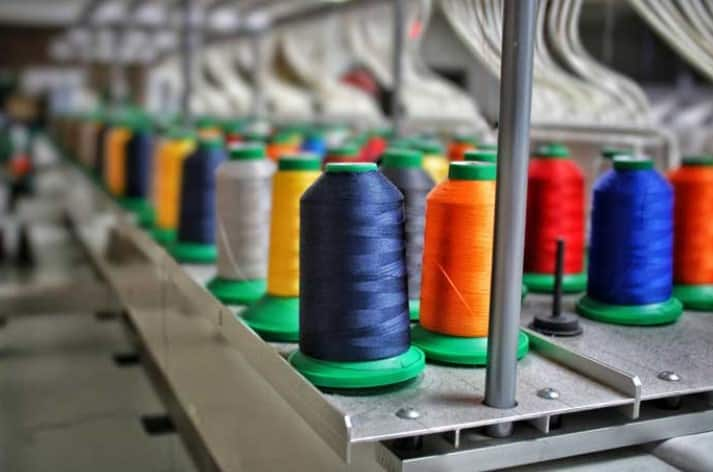
Micro, small and medium enterprises (MSMEs) have sought a special relief package, similar to that provided during the Covid-19 crisis, to cushion the impact of the fall in exports following the imposition of tariffs by the US President Donald Trump.
The issue was raised during the pre-Budget consultation chaired by Finance Minister Nirmala Sitharaman on November 12, where MSME representatives said several exporters were facing a liquidity crisis, with many accounts turning into non-performing assets (NPAs).
According to sources aware of the discussions, MSME exporters told the finance ninister that India’s textile and seafood shipments had been hit hardest by the tariffs, with MSMEs’ textile exports down by around 40 percent and shrimp exports plunging 60 percent. “Export orders have either been cancelled or deferred due to the higher tariffs, leaving many MSMEs with stranded inventory and mounting loan repayments. Units are under stress and many are on the verge of becoming NPAs,” a source told Moneycontrol.
MSMEs urged the Finance Minister to announce relief similar to what was provided during the Covid-19 crisis. “The government and Reserve Bank of India (RBI) had provided multiple relaxations to MSMEs during the pandemic to prevent their loans from being classified as NPAs. A similar dispensation is now needed to offset the impact of US trade barriers,” another source told Moneycontrol.
During the Covid period, MSMEs were given moratoriums, one-time restructuring of loans without asset downgrade, and guaranteed funding under the Emergency Credit Line Guarantee Scheme (ECLGS). MSMEs in the pre-budget meet sought a comparable framework to support exporters affected by the tariffs.
Collateral-free lending
At the consultation, MSME representatives also raised concerns about the slow implementation of the Credit Guarantee Fund Trust for Micro and Small Enterprises (CGTMSE) scheme. They demanded that the RBI make it compulsory for all loans below Rs 50 lakh or Rs 1 crore to be covered under the collateral-free guarantee mechanism.
“The scheme exists, but banks continue to ask for collateral. The CGTMSE should be made mandatory for all small loans to ensure genuine access to credit,” he said. MSMEs argued that many small units lack fixed assets or land to pledge as security, which restricts them from availing formal loans despite the availability of the guarantee cover.
The CGTMSE scheme, established by the government and the Small Industries Development Bank of India (SIDBI), provides a guarantee for loans extended by banks and NBFCs to eligible micro and small enterprises.
Mixed feedback on 45-day payment
Another key topic discussed at the meeting was the 45-day payment rule introduced through clause (h) of Section 43B of the Income-tax Act, effective from April 1, 2024. The rule mandates that payments to registered MSMEs must be made within 45 days of acceptance of goods or services, failing which the buyer cannot claim the expense as a deduction in that financial year.
Some MSME participants urged the Finance Minister to reconsider the rule, arguing that it has created friction in business relationships. “Certain large corporates have asked smaller suppliers to deregister from the MSME portal to bypass the 45-day payment clause. This defeats the purpose of the law,” the first source said.
However, most MSMEs reportedly backed the provision, saying it has improved payment timelines and enhanced cash flow predictability. “While some buyers are resisting compliance, the rule has made payments faster and more transparent. For most small units, it’s a net positive,” he said.
India’s MSME sector accounts for nearly 40 percent of the country’s total exports and employs over 11 crore people.Stay ahead. Stay profitable. Track the Key Performance Indicators of your business through various Utility Tools here. Get smart analysis on the go!!!